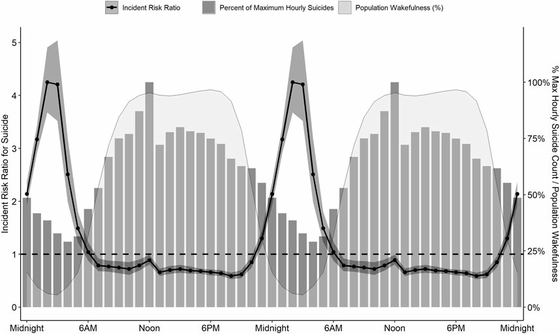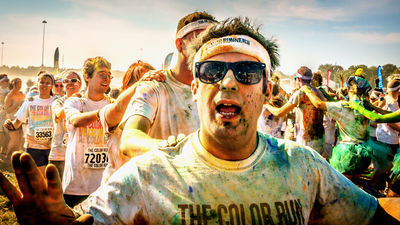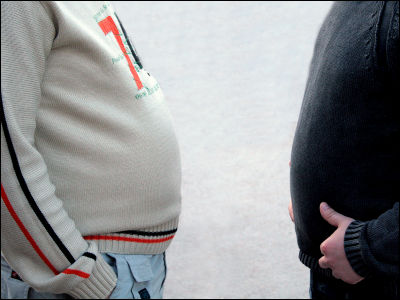Why does waking up in the middle of the night intensify negative thoughts and lead to binge eating and drinking?

I'm sure there are people who have had negative thoughts in the middle of the night, and while they couldn't sleep, they inadvertently brought something to their mouths and mumbled. It seems that when humans are awake in the middle of the night, it becomes easier to pay attention to negative emotions rather than positive emotions, and the suppression of various behaviors does not work. A research team at Harvard University has put together a paper on why people think negatively at night.
Frontiers | The Mind After Midnight: Nocturnal Wakefulness, Behavioral Dysregulation, and Psychopathology
The Human Mind Is Not Meant to Be Awake After Midnight, Scientists Warn
https://www.sciencealert.com/the-human-mind-is-not-meant-to-be-awake-after-midnight-scientists-warn
The fact that negative emotions are amplified at midnight is explained by the hypothesis 'Mind after Midnight'. This is because the human body and mind follow a natural 24-hour cycle of activity, and time influences our emotions and behavior.
For example, studies have shown that the risk of suicide between midnight and 6am is three times higher than at other times of the day. Looking at the actual number of suicides per hour and the suicide rate (line), it can be seen that the suicide rate peaks around 3:00 to 4:00 am when the number of people who are awake (Population Wakefulness, bar graph) is low. understand.

In addition, it is said that more people take illegal drugs at night. Brazil's Center for Monitored Drug Consumption
Furthermore, we know that prolonged wakefulness and inadequate sleep increase metabolic demand, leading to increased food intake to compensate for caloric expenditure in the wakeful state, whereas nighttime eating is simply a consequence of metabolic demand. Not, said the research team. Previous studies have shown that the caloric intake from nighttime meals often exceeds the caloric intake needed to stay awake for an extended period of time. A study published in 2016 points out that the urge to eat and drink at night may be motivated not only by metabolic demands but also by ``increased interest in pleasure rewards''.

In other words, at midnight, humans are prone to certain negative emotions and behaviors that should be inherently dangerous. The research team argues that this phenomenon of 'emotions and behaviors change depending on the time of day' makes sense from an evolutionary point of view. Humans are much more efficient at hunting and gathering during the day, and while night is the best time to rest, they are also more likely to be hunted. The research team explains that the increased tendency to pay attention to negative stimuli at night is to detect danger and deal with the risk of being attacked at night.
The research team believes that human beings are creatures that determine their actions based on ``rewards'' and ``motivation,'' and that changes in this reward/motivation system do not cause humans to engage in behaviors that are supposed to be dangerous. I argue that It seems that the reason why we take dangerous actions at night is that there is a problem with the activity of neurotransmitters in the brain, the saturation of synapses, and the processing of the reward circuit. The research team speculates that waking up late at night may affect neurotransmitters and reward circuits in the brain due to circadian rhythm deviations.
However, no studies have investigated how sleep deprivation and circadian rhythms affect the human reward / motivation system. The research team said, ``It is necessary to investigate why Mind after Midnight occurs in order to reliably protect people who are at high risk of nighttime awakening due to shift work, such as pilots and doctors.''

Related Posts:
in Note, Posted by log1i_yk







